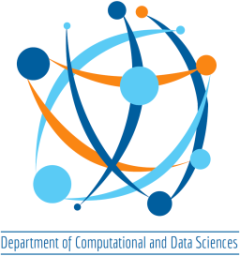Department of Computational and Data Sciences
Department Seminar
Speaker : Dr. Palash Sashittal
Title : “Algorithms to study micro-evolutionary systems”
Date & Time : December 08, 2023, 03:00 PM
Venue : # 102, CDS Seminar Hall
ABSTRACT
Rapid advancements in sequencing technologies are revolutionizing the fields of modern medicine and public health management. In recent years, several groundbreaking techniques such as CRISPR-Cas9 genome editing and barcoding of biomolecules from individual cells have emerged. These breakthroughs, coupled with the decreasing costs of genomic sequencing, have resulted in the development of various “*-Seq” protocols for measuring DNA, RNA, and proteins at unprecedented throughput and resolution.
In many biological applications, the bottleneck is not in the generation of sequence data, but rather in the computational analysis and interpretation of this data. Specifically, the diverse characteristics of these sequencing methods have created a pressing need for specialized algorithms capable of effectively interpreting the vast amounts of sequencing data.
In this talk, I will introduce two such algorithms designed to analyse data from recently developed single-cell sequencing technologies. First, I will present ConDoR, an algorithm to infer the evolutionary history of a cancer tumor using targeted single-cell DNA sequencing (scDNA-seq) data. Underlying ConDoR is a new evolutionary model, the Constrained k-Dollo model, which generalizes existing models used for cancer evolution. I will show that ConDoR outperforms existing methods for tumor phylogeny inference methods on simulated and real targeted scDNA-seq data. Second, I will present Startle, an algorithm to infer cell lineage trees from CRISPR-Cas9-based lineage tracing data. Startle uses a new model, the star homoplasy model, which captures the unique characteristics of mutations induced by CRISPR-Cas9. I will demonstrate that Startle infers more accurate phylogenies on simulated lineage tracing data compared to existing methods, and finds parsimonious phylogenies with fewer metastatic migrations on lineage tracing data from mouse metastatic lung adenocarcinoma.
BIOGRAPHY
Dr. Palash Sashittal is a Postdoctoral Research Associate with Prof. Ben Raphael in the Computer Science Department at Princeton University. His research focuses on the design of combinatorial and statistical algorithms to analyze and interpret sequencing data. Recent areas of emphasis include infectious disease evolution and transmission, cancer genome evolution, and cell fate mapping in developmental systems.
He received a Ph.D. in Aerospace Engineering and M.S. in Computer Science from the University of Illinois Urbana-Champaign (UIUC), and B.Tech. in Aerospace Engineering from Indian Institute of Technology Bombay (IIT Bombay). Palash’s work has been recognized by multiple awards and honors, including Best Paper Award at RECOMB CCB, Mistletoe Research Fellowship, Cornell Future Faculty Fellowship and Mavis Future Faculty Fellowship (UIUC). Palash is firmly committed to enhancing diversity, equity, and inclusion in STEM through mentoring, outreach, and service activities.
Host Faculty: Dr. Chirag Jain
ALL ARE WELCOME



